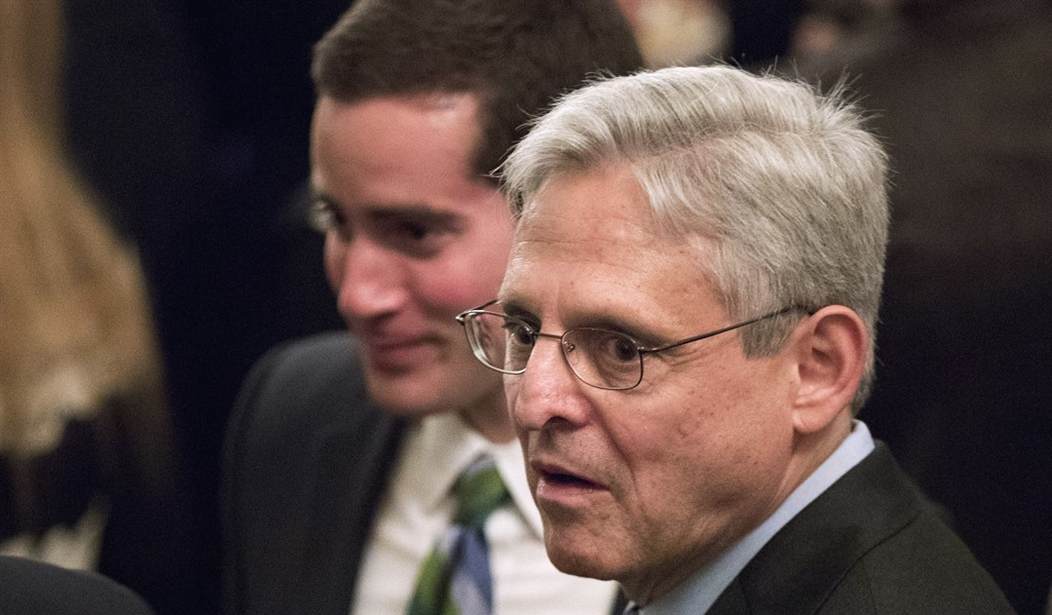In retrospect, Republicans made a mistake in not giving Merrick Garland a hearing for the Supreme Court position.
If they had, as they did today for the Attorney General position for which Joe Biden has nominated him, they could have shown how awful he was and removed that whole issue from the Democrats’ talking points for all these years.
The problem of course is that he will likely be approved for the Attorney General position.
But if you just listen to some of what he says, how could anyone be considering him for Attorney General, much less have considered this guy for the Supreme Court?
They were talking about the Capitol riot versus other situations such as the Antifa riots. Sen. Josh Hawley (R-MO) asked him about Antifa and the attacks on the Portland federal courthouse.
His answer was just unbelievable.
NEW – Biden AG pick Merrick Garland says #Antifa attacks on federal courthouse may not be domestic terrorism because they happened at night.pic.twitter.com/4Q8o0tHt8Z
— Disclose.tv 🚨 (@disclosetv) February 22, 2021
“Do you regard assaults on federal courthouses or other federal property as acts of domestic extremism, domestic terrorism?” Hawley asked.
“Well Senator, my own definition, which is about the same as the statutory definition, is the use of violence or threats of violence in an attempt to disrupt democratic processes. So an attack on a courthouse while in operation, trying to prevent judges from actually deciding cases, that plainly is domestic extremism, domestic terrorism.
“An attack simply on a government property, at night, or any other kind of circumstances is a clear crime and a serious one and should be punished. I don’t know enough about the facts of the example you’re talking about, but that’s where I draw the line.
“Both are criminal, but one is a core attack on our Democratic institutions,” Garland said.
This answer is absolutely bananas. What the heck is wrong with this guy? He’s actually saying it’s not domestic terrorism if it happens at night. How do you say that an attack on the federal courthouse isn’t “an attack on our Democratic institutions?” So let’s take the example that Hawley was actually trying to reference: the Portland federal courthouse. They’re attacking it because it is representative of the federal government and they spent over 100 days in a row with the express intent of trying to burn it down and drive the federal government out, with dozens of officers injured. If you burn it down the night before, would that not put a crimp in their operations the next day, which was sort of the point? A three hour riot is an “attack” on our institutions but more than 100 days of siege isn’t?
So is Garland saying that the bombs planted at the RNC and the DNC aren’t domestic terrorism because they happened the night before, on the night of Jan. 5, not during the day on Jan. 6? Because if they went off at night they wouldn’t be “disrupting processes.” Of course, that’s crazy. But that’s where his thinking would lead you.
By the way his definition is even wrong, perhaps to more justify his weird distinction between the Capitol riot and the Portland Courthouse Antifa riots. Garland claimed that the definition is “an attempt to disrupt democratic processes.” Actually, in the pertinent part of 18 U.S. Code § 2331, the term “domestic terrorism” means activities done to “influence the policy of a government by intimidation or coercion.” There isn’t anything about “disrupting processes” or being during the day.
In general, it’s always been understood that to mean if it was done for a ‘political purpose.’ So there is a difference between someone who just randomly vandalizes a building and someone who, like Antifa, is attacking it for a political purpose.
The problem is that this is not just a ridiculous answer but that it appears to have been crafted to try to make a nonsensical differentiation between the Capitol riot and Antifa riots. Either that or he’s just so incredibly ignorant of the facts, it’s concerning.













Join the conversation as a VIP Member